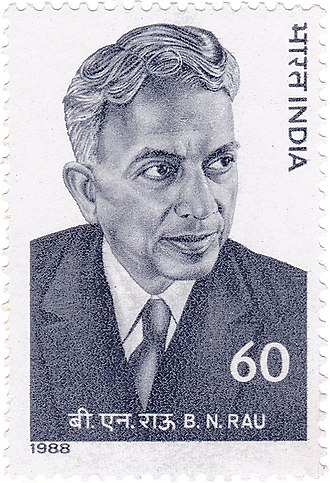Rau Last Name Origin, History, and Meaning
Where did the surname Rau come from? What does the surname Rau mean? Discover the history and meaning of the last name Rau and family migration on YourRoots Map.
Surname Rau Origin: What does the last name Rau mean?
The surname Rau has multiple origins. One early form of the surname was a nickname for a hairy person, derived from the Middle High German word meaning hairy, shaggy, or rough. It was first found among notable families in Saxony in the 13th century. In medieval England, Rau was a variant of the given name Ralph, originating from the Old Norse personal name "Radulfr", meaning counsel or advice, and wolf. The name became popular after the Norman Conquest of 1066 and was reintroduced into England by French Huguenot refugees in the late 16th century. In Sicily, Italy, it was a variant of the given name Rao, while in France, it was associated with the surname Rheault of French or Breton origin.
YourRoots data traces the appearance of the surname Rau back to Germany in the early 15th century, with records showing a close association with Germany from the 15th to the 17th centuries. The surname has since spread globally, with significant records found in countries like the United States. By the 20th century, the volume of records with the Rau surname grew notably in Germany and the United States, where it remains prominent. The surname Rau has a rich history and continues to be found in many countries worldwide, showcasing its global presence over the centuries.
Rau Last Name History: Where did the last name Rau come from?
Origin of Rau Surname: Where does the last name Rau originate from?
According to YourRoots data, the surname Rau first appeared in records from Germany around the early 15th century. Please note that this reflects only YourRoots data for the exact Rau spelling and does not include other record sources or surname variations.
History of the Last Name Rau: What does the Rau surname history look like in the early days?
The Rau surname remained closely associated with Germany from the 15th to the 17th centuries. YourRoots data also shows Rau family records in countries like the United States, indicating global spread over the centuries.
Global Spread: Where can we find the Rau surname today?
By the 20th century, the volume of records with the Rau surname grew significantly in Germany and the United States. The Rau surname remains prominent in these countries. It appears in many countries, including those not specifically listed.
Explore Rau last name heritage and Rau surname origin based on YourRoots Map data
 VIEW THE ORIGIN OF SURNAME RAU
VIEW THE ORIGIN OF SURNAME RAUFamous People With Rau Surame?

B. N. Rau
Sir Benegal Narsing Rau (26 Feb 1887 – 30 Nov 1953) was an Indian civil servant, jurist, and diplomat. He played a crucial role in drafting the constitutions of Burma and India, served as India's representative to the UN Security Council, and was a judge at the International Court of Justice. Known for his expertise in constitutional law and human rights, Rau's legacy continues to inspire legal minds worldwide.

Ines Rau
Ines-Loan Rau (March 1990 - ) is a French actress, model, and writer. She made history as the first openly transgender Playmate for Playboy in November 2017. Rau became an ambassador for L'Oréal Paris, breaking barriers for transgender representation in the fashion industry. Born in Paris, she transitioned at 16 and has since worked with top brands like Balmain and Nicole Miller. Rau's activism for transgender rights has been featured on television, showcasing her journey and advocacy. With a bold presence in the fashion world, she continues to inspire and pave the way for inclusivity and diversity.

Johannes Rau
Johannes Rau (January 16, 1931 – January 27, 2006) was a prominent German politician who served as President of Germany from 1999 to 2004. He was known for his commitment to reconciliation and social justice, with a strong background in education and reform. Rau's motto was "to reconcile, not divide," reflecting his dedication to bridging gaps and promoting unity. A member of the Social Democratic Party, he held various leadership positions in North Rhine-Westphalia before becoming President. Rau's legacy includes efforts to address Germany's past and promote tolerance. He passed away in 2006 at the age of 75, leaving behind a lasting impact on German politics.

Cornelia Rau
Cornelia Rau (born 1972) is a German and Australian citizen known for being unlawfully detained by the Australian government in 2004. Her case sparked a government inquiry into over 200 other suspected unlawful detentions. Rau's story inspired the character Sofie Werner in the 2020 show "Stateless," portrayed by Yvonne Strahovski. She has a background in art and hospitality, having worked as a flight attendant with Qantas. Rau has struggled with mental illness, including bipolar disorder and schizophrenia. Despite her challenges, she has become a symbol of the importance of mental health awareness and proper treatment.

Milo Rau
Milo Rau (born 1977) is a Swiss theatre director, journalist, playwright, essayist, and lecturer. He founded the International Institute of Political Murder (IIPM) and served as the artistic director of NTGent. Known for his political theatre, Rau has produced over 50 theatrical productions, films, books, and exhibitions. Notable works include "The Last Days of the Ceausescus" and "Hate Radio," exploring historical and sociopolitical conflicts. His controversial play "Five Easy Pieces" received critical acclaim. Rau's unique approach to storytelling through performance has earned him recognition as a leading figure in modern theatre.
All images displayed on this page are sourced from Wikipedia or Wikimedia Commons.We use these images under their respective Creative Commons or public domain licenses. Wherever applicable, author attributions and license information are provided. If you believe an image is used incorrectly or outside its license terms, please contact us so that we can review and correct the issue.




.png)